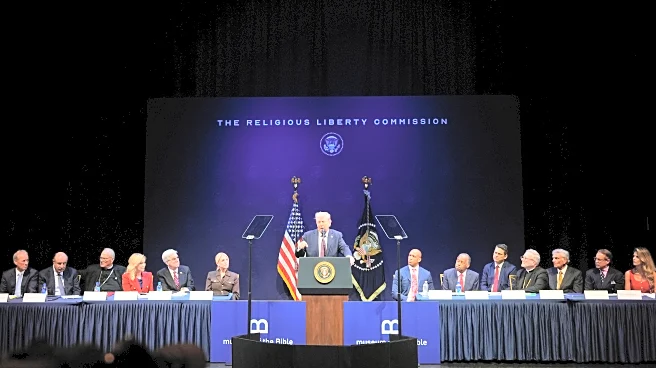Rapid Read • 8 min read
A new experiment inspired by the controversial 1989 cold fusion claims has been conducted by Curtis Berlinguette and his team at the University of British Columbia. The original cold fusion experiment, which suggested nuclear fusion at room temperature, was debunked due to irreproducibility. However, Berlinguette's team has developed a tabletop particle accelerator that uses deuterium and palladium to increase fusion rates. Although the experiment does not produce significant energy, it offers a reproducible method that could advance nuclear fusion research. The team achieved a 15% increase in fusion rate, though this is far from practical energy production levels.
AD
The revival of cold fusion techniques in a new experiment could have significant implications for nuclear fusion research. While the original cold fusion claims were dismissed, the new approach provides credible data that could enhance understanding of fusion processes. This research may contribute to the development of more efficient fusion reactors, potentially leading to breakthroughs in clean energy production. The experiment's focus on electrochemical techniques to increase deuterium in metals could also have applications in creating high-temperature superconductors, which are crucial for advancing electrical and energy systems. The findings underscore the importance of interdisciplinary approaches in tackling complex scientific challenges.
Berlinguette's team plans to explore ways to increase the fusion rate by redesigning the reactor and experimenting with different electrode materials. Further research could lead to improvements in fusion efficiency, making the technology more viable for energy production. The team is also investigating the potential applications of their electrochemical techniques in other fields, such as superconductivity. As the experiment gains attention, it may inspire collaborations with other research institutions and attract funding to support continued exploration of fusion technologies.
The experiment highlights the enduring interest in cold fusion and its potential to revolutionize energy production. Despite past controversies, the pursuit of alternative fusion methods reflects the scientific community's commitment to finding sustainable solutions to global energy challenges. The research also raises ethical considerations regarding the allocation of resources to experimental technologies with uncertain outcomes. As fusion research progresses, it will be important to balance innovation with responsible scientific practices.
AD
More Stories You Might Enjoy












